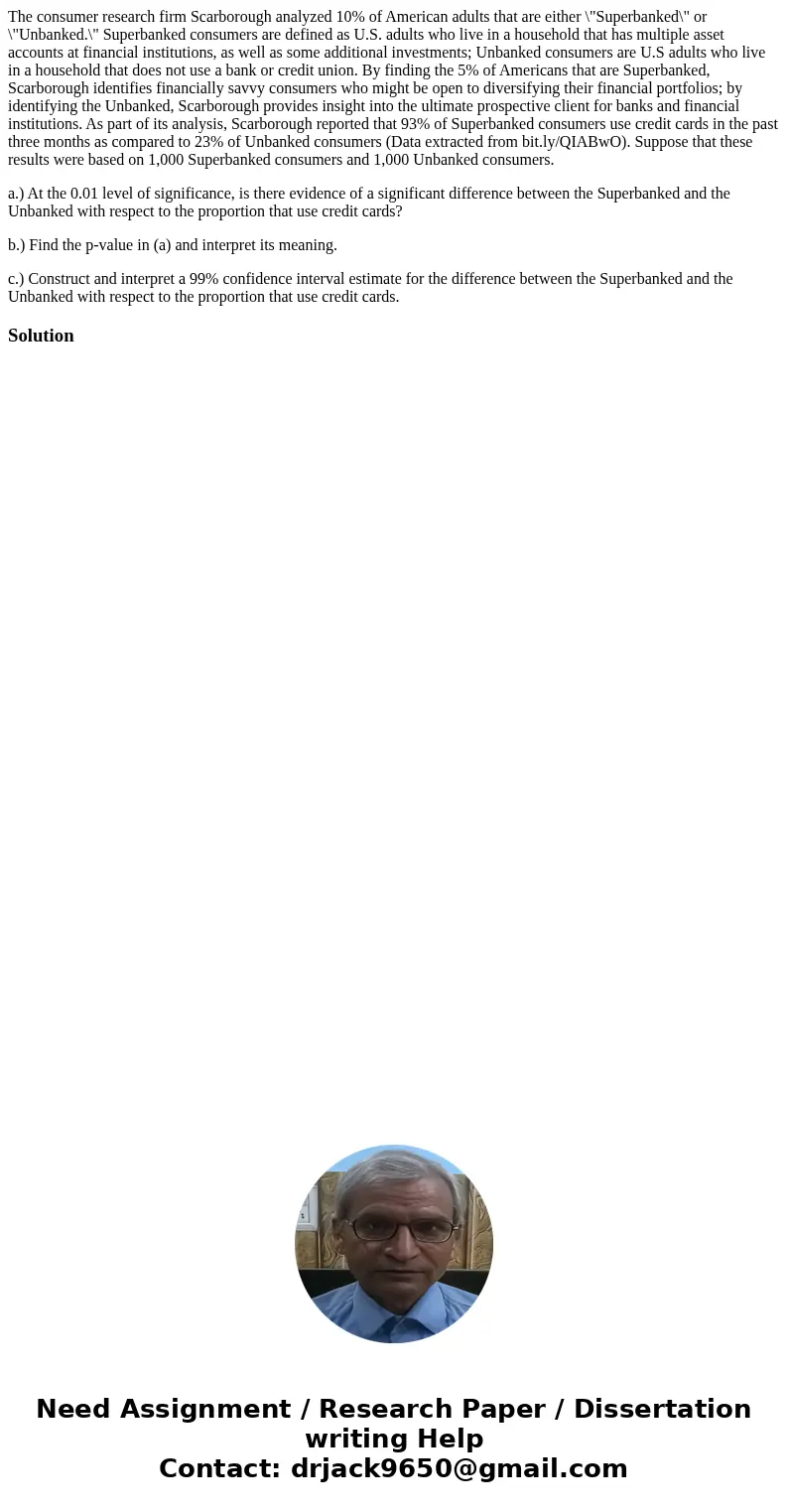The consumer research firm Scarborough analyzed 10 of Americ
The consumer research firm Scarborough analyzed 10% of American adults that are either \"Superbanked\" or \"Unbanked.\" Superbanked consumers are defined as U.S. adults who live in a household that has multiple asset accounts at financial institutions, as well as some additional investments; Unbanked consumers are U.S adults who live in a household that does not use a bank or credit union. By finding the 5% of Americans that are Superbanked, Scarborough identifies financially savvy consumers who might be open to diversifying their financial portfolios; by identifying the Unbanked, Scarborough provides insight into the ultimate prospective client for banks and financial institutions. As part of its analysis, Scarborough reported that 93% of Superbanked consumers use credit cards in the past three months as compared to 23% of Unbanked consumers (Data extracted from bit.ly/QIABwO). Suppose that these results were based on 1,000 Superbanked consumers and 1,000 Unbanked consumers.
a.) At the 0.01 level of significance, is there evidence of a significant difference between the Superbanked and the Unbanked with respect to the proportion that use credit cards?
b.) Find the p-value in (a) and interpret its meaning.
c.) Construct and interpret a 99% confidence interval estimate for the difference between the Superbanked and the Unbanked with respect to the proportion that use credit cards.
Solution

 Homework Sourse
Homework Sourse